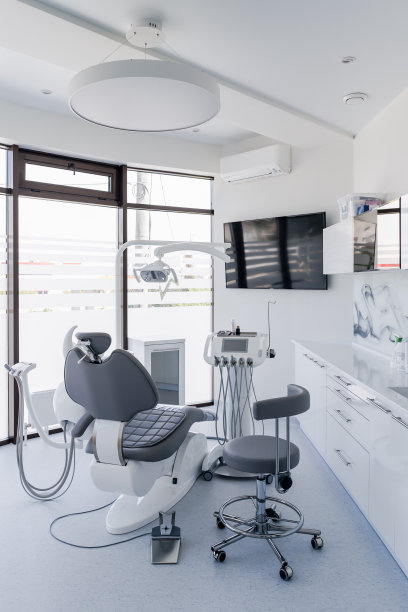Summary: Taking care of your oral health is crucial, especially following dental procedures like fillings. Before the dental filling procedure, its essential to prepare adequately, communicate effectively with your dentist, and maintain good oral hygiene. Post-procedure, special care must be taken to ensure the longevity of the filling and overall oral health, including monitoring sensitivity, maintaining a soft diet, and adhering to follow-up appointments. This article outlines four key precautions to consider before and after a dental filling to ensure optimal recovery and sustained oral health.
1. Preparing Your Oral Health Pre-Filling

Preparation before receiving a dental filling is vital for a smooth procedure. Regular dental check-ups should be scheduled, ideally every six months, to catch potential issues early. Highlight any ongoing discomfort or problems with your dentist, as this information can help guide the filling process. Having a clean mouth can reduce the risk of complications.
Good oral hygiene should be practiced in the days leading up to your appointment. This includes regular brushing with fluoride toothpaste and flossing to remove any food particles or plaque that could lead to further decay or complicate the filling process.
Additionally, be mindful of your overall health. If youre experiencing any illness or are on medication, inform your dentist ahead of time. Certain medications can influence the procedure and recovery, so it’s crucial to have open communication.
2. Communicating Effectively with Your Dentist
Effective communication with your dentist before the procedure is key. Prepare a list of questions or concerns regarding the filling, such as the materials used, the procedure steps, and aftercare instructions. Understanding the filling type - whether amalgam, composite, or another material - can help you manage expectations.
Discuss your dental history with your dentist. If you have had previous fillings or dental work, this could influence the current procedure. Providing a detailed account of previous treatments helps the dentist tailor the procedure to your specific needs.
Moreover, be sure to discuss financial arrangements and insurance coverage for the filling. Understanding costs can alleviate potential stress. Having clarity on the procedure and costs will contribute to a more pleasant experience.
3. Post-Procedure Care for Optimal Recovery
After the filling procedure, the first priority should be managing any discomfort. It is common to experience sensitivity to temperature changes or pressure for a few days. Over-the-counter pain relievers can help mitigate discomfort but consult your dentist if pain persists beyond a few days.
Maintaining a soft diet shortly after the procedure is advisable. Avoiding hard, crunchy, or excessively hot foods will prevent unnecessary stress on the filling and minimize discomfort. Focus on softer foods like yogurt, mashed potatoes, and soups during this recovery period.
Follow-up appointments are also crucial. Keeping the scheduled visits ensures that the filling remains intact and that no further issues arise. During these visits, the dentist can assess your recovery and provide additional guidance on maintaining oral health post-procedure.
4. Long-Term Oral Health Habits
Promoting long-term oral health goes beyond just the immediate aftermath of a dental filling. Establishing a routine that includes brushing twice daily and flossing regularly can help prevent future cavities and the need for more fillings. Incorporating mouthwash with fluoride may also provide added protection.
Additionally, regular dental check-ups remain essential even after the filling procedure. Engaging with your dentist routinely can help spot potential issues early and maintain optimal oral health. They can provide personalized advice based on your dental history and current oral health.
Finally, consider reducing sugary foods and beverages in your diet. High sugar intake can lead to decay and additional fillings in the future. Promoting a balanced diet rich in vitamins and minerals strengthens teeth and gums, fostering long-term oral health.
Summary:
In conclusion, adequate preparation and care before and after a dental filling are essential for maintaining optimal oral health. By following the outlined precautions, patients can promote healing and prevent future dental issues. Engaging in consistent oral hygiene, effective communication with your dentist, and regular check-ups can significantly impact overall dental health.
This article is compiled by Vickong Dental and the content is for reference only.
Vickong Dental
Vickong Dental is a large medical group established in Hong Kong in 2008 by professors from well-known medical universities in Guangdong and Hong Kong, as well as medical doctors from key national '985' universities (including Master's supervisors and senior professors). The chain of branches brings together expert dentists with PhDs and Master's degrees from Hong Kong and Mainland China, committed to providing high-quality dental treatment.
"Vickong Dental Practices the University Motto of 'Healing and Serving Society,' with a Stable Operation for Sixteen Years. It Has Been honored with Hong Kong Enterprise Leaders's Choice,' and is a Global Trusted Implant Center for the Nobel Implant System. Recommended by Hong Kong Metro Broadcast and Guangdong Television, it Serves Customers from Over Thirty Countries and Regions, Gaining the Trust and Favor of Citizens from the Guangdong-Hong Kong-Macau Greater Bay Area and Surrounding Cities.

Thousands of customers' unanimous praise
The most recognized and highly recommended dental service by customers in the Guangdong-Hong Kong-Macau Greater Bay Area
We Ensure You Receive Detailed Care and Attention Here
Hong Kong standards, Shenzhen prices, Your Trusted English-speaking dentists

Vickong Dental Medical-Grade Instrument Disinfection Process
Vickong Dental Medical-Grade Instrument Disinfection Process

Vickong Dental Chain: A Warm and Comfortable Environment for Treatment






Appointment Hours

Q&A
Why choose Vickong Dental?
Vickong Dental practices the university motto 「Medicine to Benefit Society」, with each branch bringing together highly qualified dentists with doctoral and master’s degrees from Hong Kong and the Mainland, and has maintained seventeen years of steady operation。Recipient of 「2024 Hong Kong Enterprise Leaders Brand」, 「2025 Hong Kong Enterprise Leaders Brand」, a Nobel Biocare Global Trusted Implant Center, and a brand recommended by Metro Radio Hong Kong and Guangdong TV。
To date, we have served customers from more than thirty countries and regions,earning exceptionally high word-of-mouth recognition and trusted recommendations from residents across the Guangdong-Hong Kong-Macao Greater Bay Area and surrounding cities
We have eight major branches in Zhuhai、Shenzhen,and a consultation and service assurance center in Hong Kong,so you can book a free consultation at any time for any questions,which is very reassuring.
If I do not accept the quotation after the CT scan, will I be charged??
No! As long as the actual treatment has not started, you will not be charged any fees.
Will there be any additional charges during the treatment process?
No, there won’t be any additional charges. Before treatment begins, we will clearly explain the treatment plan and its corresponding fees. Only after the patient agrees and signs the consent form will we proceed with the dental service.
Can I pay in Hong Kong dollars?
Yes. Vickong Dental accepts payment in Hong Kong dollars. The amount will be converted based on the exchange rate of the day, and the applicable rate will be clearly communicated to you in advance.
Can I reschedule my appointment at any time?
Yes. Please contact us via **WeChat** or **WhatsApp** as early as possible, providing your original appointment time and details, along with your preferred new date and time slot for rescheduling.













